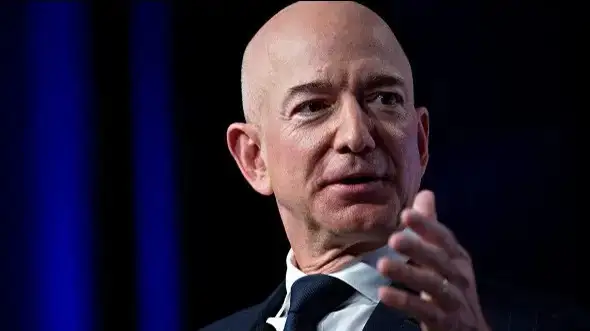The Washington Post faces backlash over decision to end presidential endorsements
The Washington Post’s decision not to endorse a presidential candidate, now or in the future, has sparked controversy among its staff, reports a Kazinform News Agency correspondent.

Jeff Bezos, the billionaire owner of the newspaper, remains silent amid the turmoil. Reportedly, it was Bezos who blocked the planned endorsement of Vice President Kamala Harris, according to CNN.
In the last 24 hours, tensions have escalated, with at least one editor resigning. Many Washington Postjournalists in the Opinion section are frustrated, and prominent staff members have voiced concerns about the process. Some suspect Bezos’s business interests might have influenced the decision. Former executive editor Marty Baron criticized the move, calling it “cowardice”, especially given the timing—just days before the election.
“To declare a moment of high principle, only 11 days before the election... is just highly suspect,” Baron told CNN, suggesting that Bezos might be bowing to pressure from Donald Trump. He noted that while he led the paper, Bezos stood firm against political pressure, but now other interests could be at play. “Bezos has other commercial interests... a big stake in Amazon, he has a space company called Blue Origin,” Baron said, pointing to Trump’s history of targeting perceived adversaries.
The decision has drawn mixed reactions within the newsroom. Washington Post publisher Will Lewis defended the decision, denying that Bezos was involved. “He was not sent, did not read, and did not opine on any draft,” Lewis said in a statement. He added that the paper should allow readers to form their own opinions, maintaining its independence.
Despite this defense, many journalists are troubled by the timing. One Washington Postjournalist told CNN that “deciding that now, right before an election, puts us in a lose-lose position.” Some staffers are also worried about the potential impact on subscriptions, which could affect the paper’s financial stability.
Longtime Washington Postcolumnist Robert Kagan resigned over the non-endorsement decision, accusing Bezos of trying to curry favor with Trump, who has a history of criticizing Bezos and his companies. Kagan suggested the move was to protect Amazon’s and Blue Origin’s interests, particularly since Trump recently met with Blue Origin executives.
The decision has become a point of pride for Trump’s supporters, who see it as a blow to Kamala Harris’s campaign. A series of reactions from Trump’s camp quickly followed, with his adviser Stephen Miller and spokesman Steven Cheung celebrating the move. The Trump campaign also highlighted similar decisions by other major papers, using them to criticize Harris.
Meanwhile, legendary Washington Post journalistsBob Woodward and Carl Bernstein expressed disappointment, stating that the decision ignored the evidence of Trump’s threats to democracy, documented extensively by the paper itself. A group of 17 Washington Post opinion columnists echoed this sentiment, calling the non-endorsement “a terrible mistake” that goes against the paper’s editorial mission.
Though The Washington Post insists it remains neutral, the fallout has left staff and readers questioning the motivations behind the decision, especially so close to a pivotal election.
